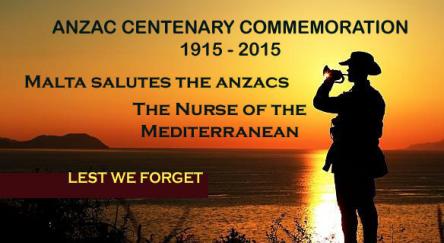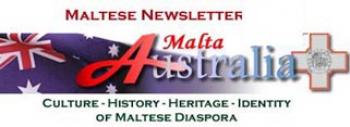




MALTESE OF NEW CALEDONIA – HUNDRED YEARS ON – NOVEMBER 1916
MIGRATION LEGISLATION AMENDMENT BILL (NO. 6) 2001
Monday, 24 September 2001
Nick Bolkus is a former Federal Australian Senator and Minister and former Australian Labor Party politician. He was a member of the Senate from July 1981 to 2005, representing the state of South Australia. Here is a section of his speech in the Australian parliament regarding the Migration Legislation Amendment Bill 2001.
Senator Bolkus said: I support this legislation because it is the only option, but I am concerned about where it takes Australia. As immigration minister in 1995, I had the pleasure of launching a book. I will read some excerpts from that book. It was about a man called Emmanuel Attard, written by Mark Caruana and Barry York. Emmanuel Attard was a man of special dignity, charm, intelligence, patience and reserve. He was born in the village of Qala, in Gozo, Malta, in 1898. At the time of his birth, Australia did not exist as a nation; it was six separate colonies. Malta's population was about 180,000. The life of Emmanuel Attard had, in its first seven decades, spanned all of, I suppose, the transition of the world at the turn of the century. He lived through a depression and through two world wars. The book states:
In the first global conflagration, he served at Gallipoli with the Malta Labour Corps and, in 1917, enlisted with the Australian Forces and served on Europe's Western Front.
Mr Attard was 96 years old when I launched the book. I hope that he is still alive now; I have had no contact with him since that time. Mr Attard was one of 214 Maltese migrants who travelled to Australia on the French mail boat, the Gange, in 1916. The Gange had assumed almost legendary status among Maltese-Australians as a tale of grave injustice and as an indictment of Australian racism. Emmanuel Attard was one man who experienced it. The 214 men who travelled to Australia on that French mail boat in 1916 had every right to believe that they would be allowed to disembark at an Australian port, but they were denied entry. They were declared prohibited immigrants and compelled to stay on the ship until it reached its final destination, the Pacific island of New Caledonia. Don't things ever stay the same!
There the men languished for nearly 10 weeks, until finally being returned to Sydney, where they were detained for approximately 20 days on an old hulk in Berry's Bay, Sydney Harbour. Finally, after a storm of protest about their treatment, the Australian Prime Minister, Billy Hughes, allowed them to disembark. Why did they finish up in New Caledonia? How did that happen? When they arrived in Australia—and they arrived here as British subjects—they expected that they would be allowed on board but when they reached Melbourne the actual prohibition took place. This is documented in the logbook of the Gange's captain. When they reached Melbourne, the men were declared prohibited immigrants after failing the infamous dictation test which was applied to them in the Dutch language. Off they went to New Caledonia for 10 weeks. Why were they refused entry? According to the book:
Essentially, the answer lay in two factors: the Maltese had become the meat in a domestic political sandwich and there was hostility in Australian society to any immigrants regarded as `non-white'. The Australian people in those days were generally racist. In October 1916, for example, the Australian Workers Union described the Maltese as `The Black Menace'. In Australian immigration policy, the Maltese were regarded as `semi-white' until 1944 when, at the instigation of Australian External Affairs Minister, Herbert Vere Evatt, and after persistent lobbying by Malta's High Commissioner, Captain Henry Curmi, they were reclassified as `white British subjects of European descent'.
It is ironic that some 86 years further down the track we are now debating a similar situation. Responses have not changed all that much but you would have thought that during that intervening 86 years governments would have learned from the mistakes of the past—but I do not think this government has.
The Maltese remained on the Gange until it reached Noumea. They were there for 10 weeks. They were returned to Sydney on the St Louis on 22 February 1917 and stayed on the old hulk for some time. In Emmanuel Attard's case, he accepted an offer to be allowed into Australia so long as he join the armed services; he did that. His other colleagues on the boat were not prepared to do that.
It is amazing when you look back that since those days Australia has become the home of probably 350,000 or so Maltese migrants, all of whom have settled here and are a model community in terms of the migration process. It is also interesting to note that Mr Attard lived in Adelaide—and it is a coincidence that I had not realised earlier that he lived very close to where my parents lived. Eighty-six years later, we are still as a nation going through the same fear and the same concerns and the same need to protect our borders. For some period there in the eighties and nineties we found a better way of doing it. Unfortunately for this country's reputation, this government dropped the ball and missed the opportunity to do something effective over the last 12 months. We now find ourselves in a position where this parliament, I believe, does not have an option but to support this legislation, recognising full well that this is not the best way to go.
